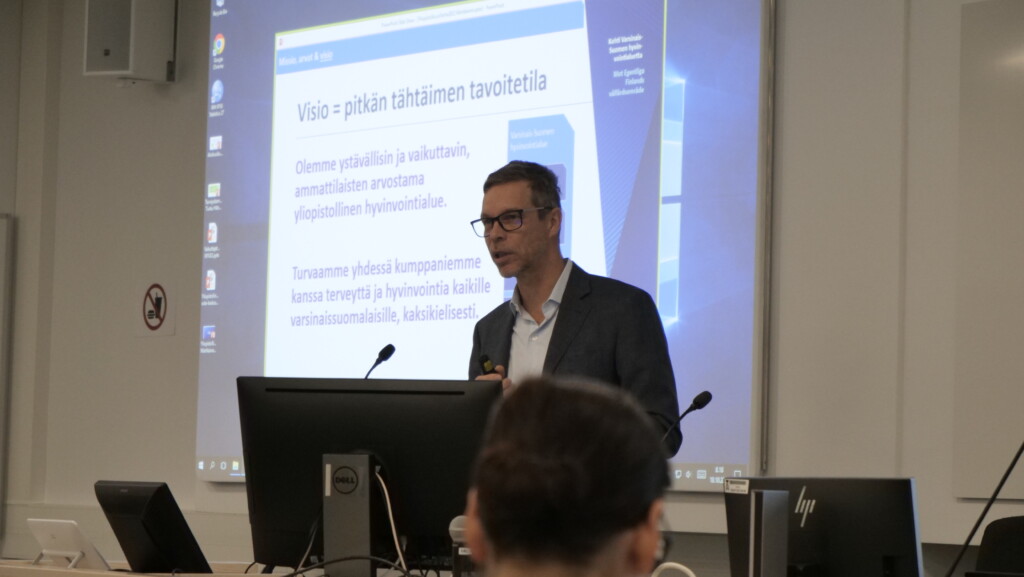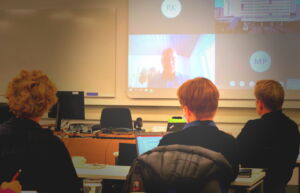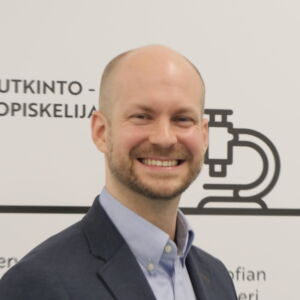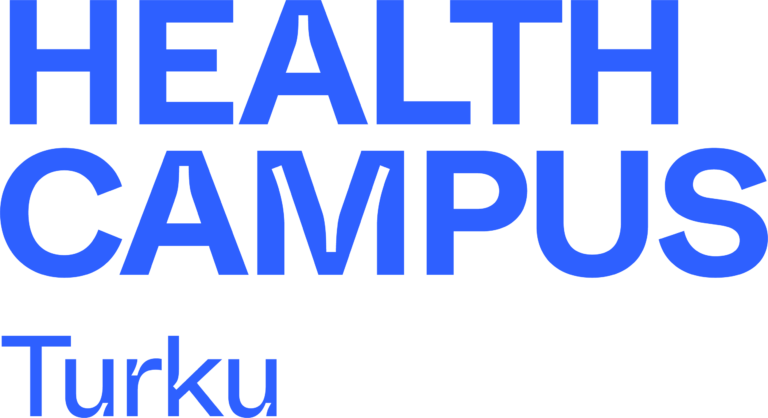Health Campus Turku: sufficient RDI funding must be secured for wellbeing service counties

 In addition to the provision of social and health services, a welfare region must organise the processes of research, development, training and innovation (RDI) in its own activities and their funding. Health Campus Turku organised a seminar on this topic, to which the key players in the field in Finland were invited. The discussion highlighted the national importance of the health cluster in Southwest Finland in research and development.
In addition to the provision of social and health services, a welfare region must organise the processes of research, development, training and innovation (RDI) in its own activities and their funding. Health Campus Turku organised a seminar on this topic, to which the key players in the field in Finland were invited. The discussion highlighted the national importance of the health cluster in Southwest Finland in research and development.
The meeting was attended by more than 60 social leaders from Southwest Finland, ranging from members of parliament and regional councillors to the leadership of the regional government, Turku University Hospital (TYKS) and the hospital district. The main focus of the meeting was on securing RDI funding in the framework of the wellbeing county, and the clear will of the speakers was to do so.
The first speaker, Tarmo Martikainen, Director of the Southwest Finland Wellbeing Region, spoke about the short-term plans for the region: “Investment in research and development must be made part of the everyday life of the region. The aim is to increase research in primary health care and social work. In my view, resources are already in place for specialised health care.”
“Our first objective is that services continue as they have been and the rest of the future is still very much a work in progress.” Martikainen concluded.
Speaking about the importance of the university hospital, Mikko Pietilä, Director of the Hospital District of Southwest Finland until the end of the year, stressed the value of TYKS as an institution. “Few people know that TYKS is the 58th best hospital in the world and the fifth best in the Nordic countries. We must continue to safeguard its position in the future. The best hospitals in the world are all university hospitals, and so our day-to-day RDI activities play a role in how well we can serve our customers.”
In general, the importance of RDI at national level, both as a solution to labour shortages and as a tool for the sector’s export prospects, was highlighted several times during the event. Indeed, the opportunity to conduct research is, according to the speakers, the main attraction for university hospitals when recruiting and is a key factor in increasing the attractiveness of hospitals in international comparisons.
The Director of the Wellbeing Region also highlighted the point that labour shortages will continue to be part of the day-to-day running of the health service. RDI is therefore a key factor in solving this problem, and new innovations must be used to support the sufficiency of the workforce in the health care sector.
RDI funding is also seen as having an important employment effect as part of the business sector. In his speech, Professor Juha Töyräs, Director of Research and Innovation at the North Savo Hospital District, emphasised the importance of health technology for Finland’s economy: “Health technology has brought Finland a surplus of EUR 14 billion in just over twenty years – globally, this is an exceptionally good figure. Health technology accounts for more than half of Finland’s high-tech exports. If scientific research could not be carried out in university hospitals, it is clear that the sector would lose its lead.”
 Anne-Mari Virolainen and Ville Valkonen, Members of Parliament, who attended the meeting, were pleased with the seminar. Ms Virolainen stressed the importance of research: “Research is a major driver of attractiveness and growth, and once again this was demonstrated at this meeting. Today’s research is tomorrow’s good care.”
Anne-Mari Virolainen and Ville Valkonen, Members of Parliament, who attended the meeting, were pleased with the seminar. Ms Virolainen stressed the importance of research: “Research is a major driver of attractiveness and growth, and once again this was demonstrated at this meeting. Today’s research is tomorrow’s good care.”
Mr Valkonen, acting chairman of the provincial government, also stressed the regional perspective: “Research in health and well-being is a huge success factor for us. We already have a strong medical cluster and a world-class university hospital. In addition, we have significant research at the Turku University of Applied Sciences. We have a lot to gain in securing funding for RDI, including in terms of economic policy.”
Health Campus Turku is a major multidisciplinary cluster of excellence in medicine, social and health care and technology, offering unique opportunities for research, innovation and business cooperation. The Health Campus Turku cooperation involves the Hospital District of Southwest Finland, the University of Turku, Åbo Akademi, Turku University of Applied Sciences, Yrkeshögskolan Novia and Turku Science Park Ltd. The parties will promote research and cooperation conditions, education, business and innovation. Further information: www.healthcampusturku.fi
